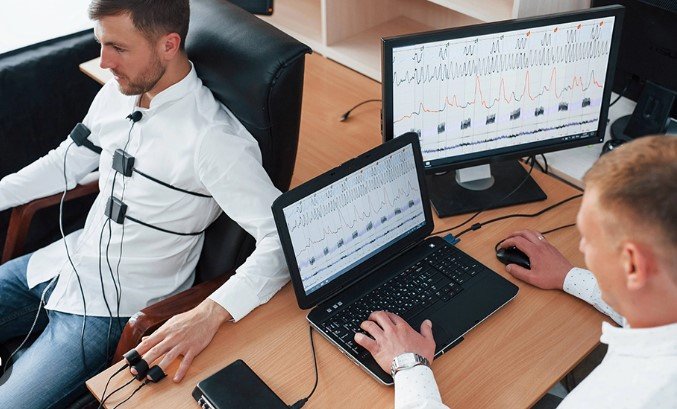Understanding Lie Detector Tests in Canada: The Truth Behind Polygraph Examinations

What Is a Polygraph Test?
A polygraph test, commonly known as a lie detector test, is a method used to determine the truthfulness of a person’s statements by measuring physiological responses. The term “polygraph” itself means “many writings,” referencing the multiple data points recorded during the test, including heart rate, blood pressure, respiration, and skin conductivity. These measurements are believed to change when a person is being deceptive. A trained polygraph examiner interprets these physiological changes to assess whether the person is being truthful or deceptive. However, it’s important to understand that polygraph tests do not directly detect lies. Instead, they monitor the body’s stress responses, which may or may not indicate dishonesty depending on the individual being tested and the circumstances.
Use of Lie Detector Tests in Canada
polygraph tests in Canada are not commonly used as part of standard legal proceedings and are not admissible as evidence in criminal court. This is due to ongoing debates about their reliability and scientific validity. Canadian courts generally view polygraph evidence as too unreliable to influence a trial’s outcome. However, polygraph tests may still be used in other contexts, such as during criminal investigations, pre-employment screening for certain government and law enforcement roles, or internal organizational matters. Police forces and federal agencies might use polygraph examinations as an investigative tool, but the results are used more as a guide rather than definitive proof of guilt or innocence.
How the Test Works
During a polygraph examination, the subject is connected to several sensors that measure vital signs. The test typically begins with a pre-test interview, during which the examiner explains the process, ensures the subject understands the questions, and sets a baseline for physiological responses. The actual test includes a series of yes-or-no questions, some of which are neutral and others directly related to the issue under investigation. The theory is that when a person lies, the fear of being caught or the internal conflict causes involuntary physiological changes, which the polygraph machine detects. However, responses can vary greatly between individuals. Nervousness, anxiety, or even certain medical conditions can affect the results, leading to false positives or false negatives.
Accuracy and Controversy
The reliability of polygraph tests has been the subject of scientific and legal debate for decades. While proponents argue that a well-conducted polygraph test by a trained professional can reach accuracy levels of up to 90%, critics point out that results can be manipulated or misinterpreted. Some people, such as those with high levels of self-control or those trained to deceive, may be able to pass the test while lying. Conversely, an innocent person may fail due to anxiety or stress. Because of these issues, many experts and legal authorities caution against over-reliance on polygraph testing, especially in high-stakes decisions such as court rulings or employment terminations.
Legal and Ethical Considerations in Canada
Canadian law places strict limits on the use of polygraph tests. As mentioned earlier, results from lie detector tests are not admissible in court due to their questionable reliability. Moreover, employers cannot force employees or job applicants to take a polygraph test, and refusal to do so cannot legally be held against them. Privacy concerns are also relevant, as the tests involve collecting sensitive physiological data. For these reasons, polygraph examinations in Canada are typically used only with informed consent and in specific investigative scenarios where other evidence is lacking or unclear.
Location in Canada
- Vancouver – 525 W 8th Ave #800, Vancouver, BC V5Z 1C6, Canad,
- Calgary – 685 Centre St S, Calgary, AB T2G 5P6, Canada
- Ottawa – 116 Albert St Suites X, Ottawa, ON K1P 5G3, Canada
- Hamilton – 1601 King St. East, Hamilton, ON L8K 1T5
- Laval – 3221 Highway 440 West, suite 222, Laval, QC H7P 5P2
- Edmonton – First Edmonton Place, 10665 Jasper Ave 14th Floor, Edmonton, AB T5J 3S9, Canada
Read also: Dome Rooflights: Brightening Spaces with Style and Efficiency
Conclusion
Polygraph tests, or lie detector tests, continue to spark both interest and controversy in Canada. While they can serve as useful investigative tools in certain contexts, they are far from foolproof and are not recognized as scientifically conclusive evidence in Canadian courts. Their use remains limited to specific roles and situations, often with many safeguards in place to ensure ethical and legal compliance. Understanding both the capabilities and limitations of polygraph testing is essential for anyone considering its use or facing a polygraph examination. As technology advances and discussions about truth verification evolve, the role of lie detectors in Canadian society may continue to shift, but for now, they remain a tool to be used with caution and critical judgment.







